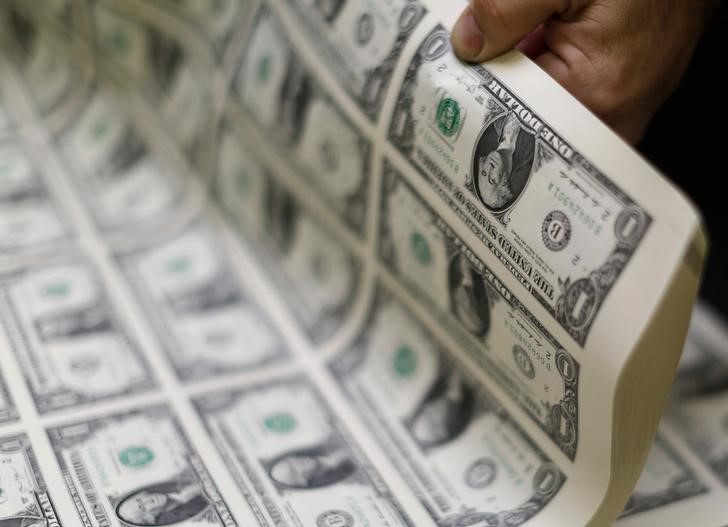By Peter Nurse
Investing.com - The U.S. dollar edged lower in early European trade Wednesday, slipping back from a fresh 20-year high against the Japanese yen, but remained elevated as more Federal Reserve officials pointed to upcoming hefty interest rate hikes.
At 3:05 AM ET (0705 GMT), the US Dollar Index, which tracks the greenback against a basket of six other currencies, traded 0.2% lower at 100.795, just below Tuesday's high at 101.03, a level not seen since March 2020.
The Federal Reserve’s meeting in early May is at the forefront of minds, with expectations growing that the central bank will hike more aggressively than the quarter percentage point move it announced at its March meeting.
Minneapolis Fed President Neel Kashkari and Chicago Fed President Charles Evans, among the more dovish Federal Open Market Committee members, both indicated on Tuesday that they were comfortable with a strong response from the central bank to combat record inflation levels.
This follows Federal Reserve Bank of St. Louis President James Bullard saying on Monday the central bank needs to move quickly to raise interest rates to around 3.5%, and it shouldn’t rule out rate increases of 75 basis points.
U.S. Treasury yields pushed higher, with 10-year yields touching 2.981% for the first time since December 2018, earlier Wednesday before slipping back to currently stand at 2.94%.
In contrast to the Fed, the BoJ again offered to buy unlimited amounts of Japanese government bonds on Wednesday, attempting to keep its 10-year yields from breaking through its 0.25% ceiling.
This resulted in USD/JPY climbing to a high of 129.40 for the first time since April 2002, before edging back to 128.70 after Japanese Finance Minister Shunichi Suzuki railed against a weakening currency, warning about the economic dangers.
Elsewhere, EUR/USD rose 0.2% to 1.0810, while GBP/USD climbed 0.2% to 1.3019, with both pairs climbing off multi-month lows against the dollar, but still feeling the impact of the war in Ukraine.
Also weighing on the single currency is the uncertainty surrounding the French presidential election, with current French President Emmanuel Macron and far-right challenger Marine Le Pen set to debate later Wednesday.
This debate could be decisive in the tight race to decide who will run the country for the next five years, with any signs of a Le Pen victory likely to pressure the euro given her anti-EU stance.
“Policy divergence between the Fed and low-yielding central banks (ECB, BoJ) continues to argue in favour of USD strength,” said analysts at ING, in a note. “USD/JPY may soon touch 130, but FX intervention is not assured, while EUR/USD could test 1.0700 soon as the French election run-off draws closer and the situation in Ukraine remains highly volatile.”
AUD/USD rose 0.6% to 0.7416, while USD/CNY rose 0.3% to 6.4118, climbing to its highest level since October 2021 after the People’s Bank of China surprised markets by keeping its loan prime rates unchanged earlier in the day, bucking the global tightening trend.
